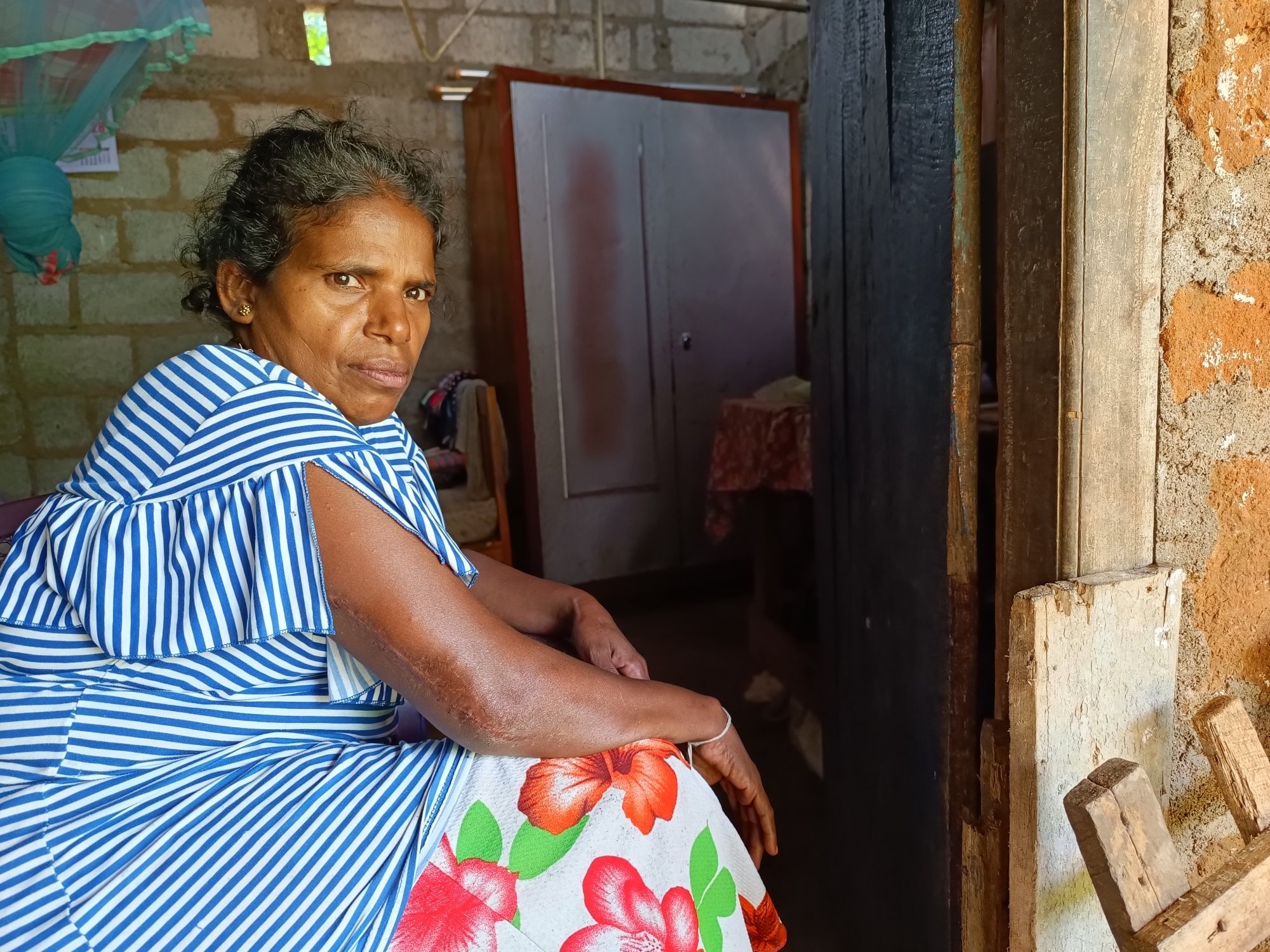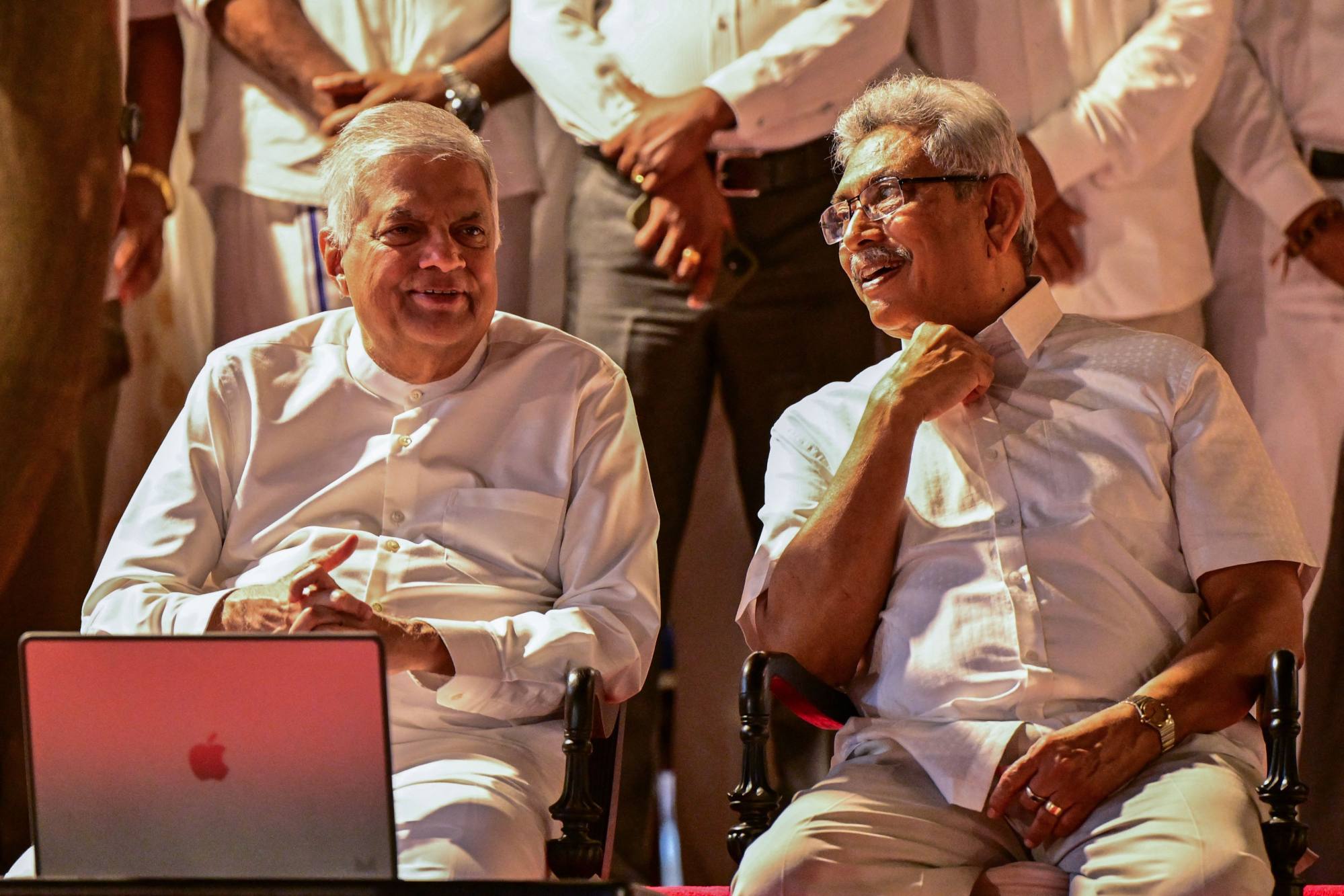Although the IMF prescribes social safety nets to buffer the hardships of vulnerable communities, Aswesuma has excluded many Sri Lankans facing dire economic situations as the government works out tax reforms introduced by the programme.
According to a survey by the World Food Programme released last December, 24 per cent of Sri Lankan households were found to be moderately “food insecure”.

In January, the country raised its value-added tax (VAT) rate to 18 per cent and removed tax exemptions on several goods and services, in an attempt to increase government revenue.
In September 2022, Sri Lanka reached an agreement with the IMF for financing worth US$2.9 billion for its “macroeconomic stability and debt sustainability” following the country’s historic default in May 2022 amid a worsening economic crisis.
The economy is showing signs of recovery after it rebounded to 4.5 per cent year-on-year growth in the fourth quarter of 2023 following six consecutive quarters of contraction. Inflation eased to 5.9 per cent last month, compared with a staggering 70 per cent in September 2022.
By the end of February, the country’s gross official reserves rose to US$4.5 billion with its central bank making “sizeable” foreign exchange purchases, said Peter Breuer, IMF senior mission chief for Sri Lanka, last week.
These economic indicators have yet to translate into improvements in the daily lives of Sri Lankans like Bandara.
“We have economic problems even when it comes to food. I buy things I sell in my shop on credit. There are barely any sales. Those potatoes were there for a week,” Bandara said, gesturing at a shelf.
‘Ball in Sri Lanka’s court’ as Japan seeks closer ties amid Indo-Pacific rivalry
‘Ball in Sri Lanka’s court’ as Japan seeks closer ties amid Indo-Pacific rivalry
Her injury has damaged her spinal cord, leaving her unable to use her hand properly or to walk freely and reducing her employment options. She also has to spend on medicine and travel to a public health clinic every two weeks, adding to her financial burden.
Despite the IMF scheme’s call to widen social safety nets, many social analysts have panned the Aswesuma programme for leaving out large numbers of vulnerable families.
“We were told that a new social protection scheme had to be designed for better targeting of beneficiaries,” said Niyanthini Kadirgamar, a member of the feminist collective for economic justice comprising economists, scholars, activists, university students and lawyers from across Sri Lanka.
“However, Aswesuma’s flawed selection process, which did not include measurements for food security, has failed to include many poor families and has narrowed the scope to only cash transfers, stripped off existing support provided for births and passing scholarship exams,” she added.
If the government was serious about addressing the severe food insecurity, the country should move towards a “universal” social protection scheme, Kadirgamar said.
Climate change traps Sri Lanka’s women farmers in cycle of economic violence
Climate change traps Sri Lanka’s women farmers in cycle of economic violence
The recent decline in inflation did not reflect that prices of essential items such as food and medicines remained very high, she argued, adding that since early this year, the increase in VAT had disproportionately put the burden of raising government revenue on ordinary citizens.
“But wages have not increased,” she added.
The Sri Lankan public education system has not been spared by the crisis as schools in areas with more economically vulnerable populations reported a significant drop in student attendance.
“With the increase of the VAT, the prices of exercise books and other school equipment have hiked. Transport costs have also increased over time. All this impacts school attendance,” Joseph Stalin, the general secretary of the Ceylon Teachers’ Union, told This Week in Asia.
“Children’s education has become a burden for parents,” he warned.
During a press conference, IMF’s Breuer said that while Sri Lanka’s quantitative performance criteria and indicative targets for the end of 2023 were met, the indicative target on social spending remained unfulfilled and reforms in some areas were still ongoing.

“Critical next steps are to finalise the agreements with the official creditors and reach agreements in principle with the main external private creditors in line with programme parameters in a timely manner,” he said on Sri Lanka’s ongoing debt-restructuring process.
This week, Sri Lanka is expected to start negotiating US$12 billion worth of defaulted bonds with investors around the world while the country is also reportedly expected to receive a six-year moratorium on debt from India and the Paris Club.
Sri Lankan President Ranil Wickremesinghe hinted at completing talks with the main bilateral creditors such as China, Japan and India as well as private creditors by June or July, before the coming elections, expected in September or October.
Uncertainty around the coming presidential election remains the major “headwind” facing the economy, Murtaza Jafferjee, chairman of Advocata Institute, a Sri Lanka-based think tank, told This Week in Asia.
Sri Lankan elections have always been an “auction of non-existing resources,” Jafferjee said, quoting Lee Kuan Yew, the late first prime minister of Singapore.
Sri Lanka’s ‘chilling’ online content law lambasted as tool to silence critics
Sri Lanka’s ‘chilling’ online content law lambasted as tool to silence critics
It was unsure whether the gains made by tighter fiscal policy would be squandered due to politics, he added.
“A new central bank law prohibits money printing so this time it will not be business as usual – promises will have to be financed through more borrowings, driving up the real cost of interest and taxation which is challenging, or by redirecting expenditure,” Jafferjee said.
Chayu Damsinghe, head of macroeconomic advisory at Sri Lanka-based Frontier Research, said the country has been on a broad recovery path since the start of reforms in 2022.
Questions remain as to the sustainability of reforms “not just macroeconomically, but also socio-economically and socio-politically,” because there was resistance due to the perception of unequal distribution of “socioeconomic pain”, he added.
“So there is still more to be done, the question is how do you move across the pathway without veering too dramatically off course.”
